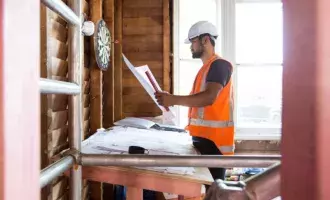Together with independent thinktank Localis, we hosted a roundtable to consider the challenges and opportunities for local growth and regional development in line with government agendas such as ‘Build Back Better’ and ‘Levelling up’.
We were privileged to be joined on the panel by national and local experts who considered:
- the role of ‘place’ in the Build Back Better approach
- the local structure for growth and how local authorities can perform their crucial economic development functions in the new ecosystem for good growth
- the autumn spending review and opportunities to align funding with local economic strategy
- the role of ‘place’ in building skills for levelling up, including whether local government could seize the skills and post-school education agenda to reform and improve local labour markets
In considering the above, we discussed how local government and other stakeholders could work together to achieve common goals, with key suggestions for moving forward, including:
1. Align multiple agendas to build back better
It was agreed that it’s key to turn places into destinations with homes and sustainable, future-proof jobs that can feed into a broader cultural offer. On the wider, global stage, local authorities have a key role to play, with place leaders linking with others regionally, nationally, and internationally to bring in new private investment.
2. Develop a shared understanding of levelling up
It’s important to recognise that the problems and needs – and, therefore, solutions - will be different in different parts of a locality, region, and the country. Levelling up needs a granular approach to identify specific problems in localities which can only be achieved collectively and collaboratively at the level of place to build a coherent evidence base and strategy. We need to map local assets and the potential within localities to build on, identifying the skills and resources needed. We then need to clarify who’s owning place leadership and understand how places can complement each other, achieving collaborative goals by making best use of all the data, resources, and knowledge available.
3. Consider carefully how to effect collaboration
The right collaborative structures must be established to clarify key themes, priorities and outcomes, particularly because of the variance in economic structures, urban/rural spaces etc across the country. We considered how place or ‘growth’ boards are effective delivery mechanisms of a shared vision for growth, and also - where a shared sense of local identity exists – the effectiveness of Local Enterprise Partnerships (LEPs) for bridging political divides to achieve regional prosperity. It’s about bringing together the critical mass of county-wide vehicles, working towards a more partnered, fluid structure of governance.
4. Identifying and nurturing the right skills
The huge increase in remote working has removed geographical barriers for recruitment and skills provision. To benefit from this, longer-term workforce planning is needed, identifying how the new work lifestyle dynamics, alongside local skills provision, can support strategic priorities. Local authorities are prime-placed to support this with their knowledge, data and understanding of place and people. They can play a valuable role as coordinator between private companies and local educational institutions to ensure training and skills provision commitments are enhanced and upheld effectively.







